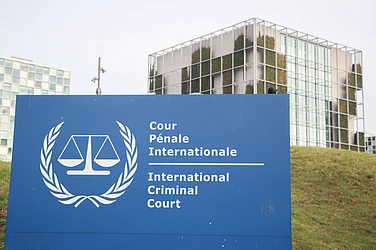Myanmar, the country bordering India’s easternmost boundary, has entered a fresh state of turmoil. On October 27, an alliance of three rebel ethnic groups launched surprise coordinated attacks on military posts in northern Shan State, bordering China, putting the junta –the ruling military regime– on the defensive. In a joint statement, the Three Brotherhood Alliance –comprising the main Arakan Alliance (AA), Myanmar National Democratic Alliance Army (MNDAA) and Ta’ang National Liberation Army (TNLA)– announced that they have begun ‘Operation 1027’, named after the date the assault began.
But this is no ordinary operation.
‘Operation 1027’ on the robust junta by the tripartite alliance is a result of 32 months of a revolution –both peaceful and aggressive– started by the tripartite ethnic groups after Myanmar’s military coup of 2021. Many see it as a symbol of the spirit and endurance of Myanmar’s people and the People’s Defense Forces (PDFs), the armed wing of the National Unity Government (NUG) –Myanmar's parallel government-in-exile– formed with the help of youths and pro-democracy activists in May 2021 following the coup d'état.
Within the first 10 days of the latest conflict, the regime lost about 100 military posts and some strategic towns to the rebel groups along with a haul of weapons in Shan and Kachin states in northern Myanmar, and upper Sagaing and Mandalay regions. The fighting has spread across the country, raising concerns among international communities about disruption in civilian lives.
However, the alliance’s success has also won unflagging support from the people for the country’s pro-democratic struggle.
Meanwhile, China, which has significant influence in the conflict due to its geographical position, has urged for a ceasefire. According to some media reports, a few Chinese soldiers on the Myanmar border were also killed in the fighting.
A foreign ministry official of the Chinese government said, "Myanmar is called on to cooperate with China to maintain stability along the China-Myanmar border, earnestly ensure the safety of the lives and property of Chinese border residents, and take effective measures to strengthen the security of Chinese personnel," said Nong Rong, assistant Chinese foreign minister.
According to a report by The Diplomat, some analysts are predicting a swift end to offensives upon such external interventions. However, China’s role, while significant, does not overshadow the socio-political will of the Myanmar people, which ultimately will dictate the course of the rebellion.
The Cost Of War
In any war, the biggest cost to pay is always the lives killed. The achievements of the pro-democratic groups in Myanmar cannot be seen without the deaths and countless displacement of families, especially in the minority areas.
As of November 13, more than 2,000 Myanmar nationals have fled to India through the international border in Mizoram after an intense gunfight in the neighbouring country's Chin state as a result of fighting following the PDF’s attack on two military bases in the state.
The influx has caused an additional concern in Mizoram, which is already battling with the entry of those fleeing Manipur’s violence.
According to the UN human rights office, since the upsurge in last month’s fighting, around 70 civilians have been killed and more than 90 injured in Myanmar. More than 200,000 people have been displaced, it said. With the latest figures, about 1.7 million people have been displaced in total in Myanmar’s civil war since the army's seizure of power in 2021.
Moreover, in northern Shan State, communication networks were disrupted as soon as the conflict started, border trade through the 105th Mile Camp, Muse, Jinsanjiao and Chin Shwe Haw were halted, and junta government employees fled their offices.
Last week, the office of UN High Commissioner for Human Rights in Geneva issued a statement saying it was “closely monitoring developments in Myanmar where anti-military armed groups and their allies have made significant advances and several hundred soldiers have reportedly chosen to lay down their weapons”.
In this light, Outlook looks at the politics of Myanmar’s conflicts and its impact on the larger socio-political dynamics in the region.






















